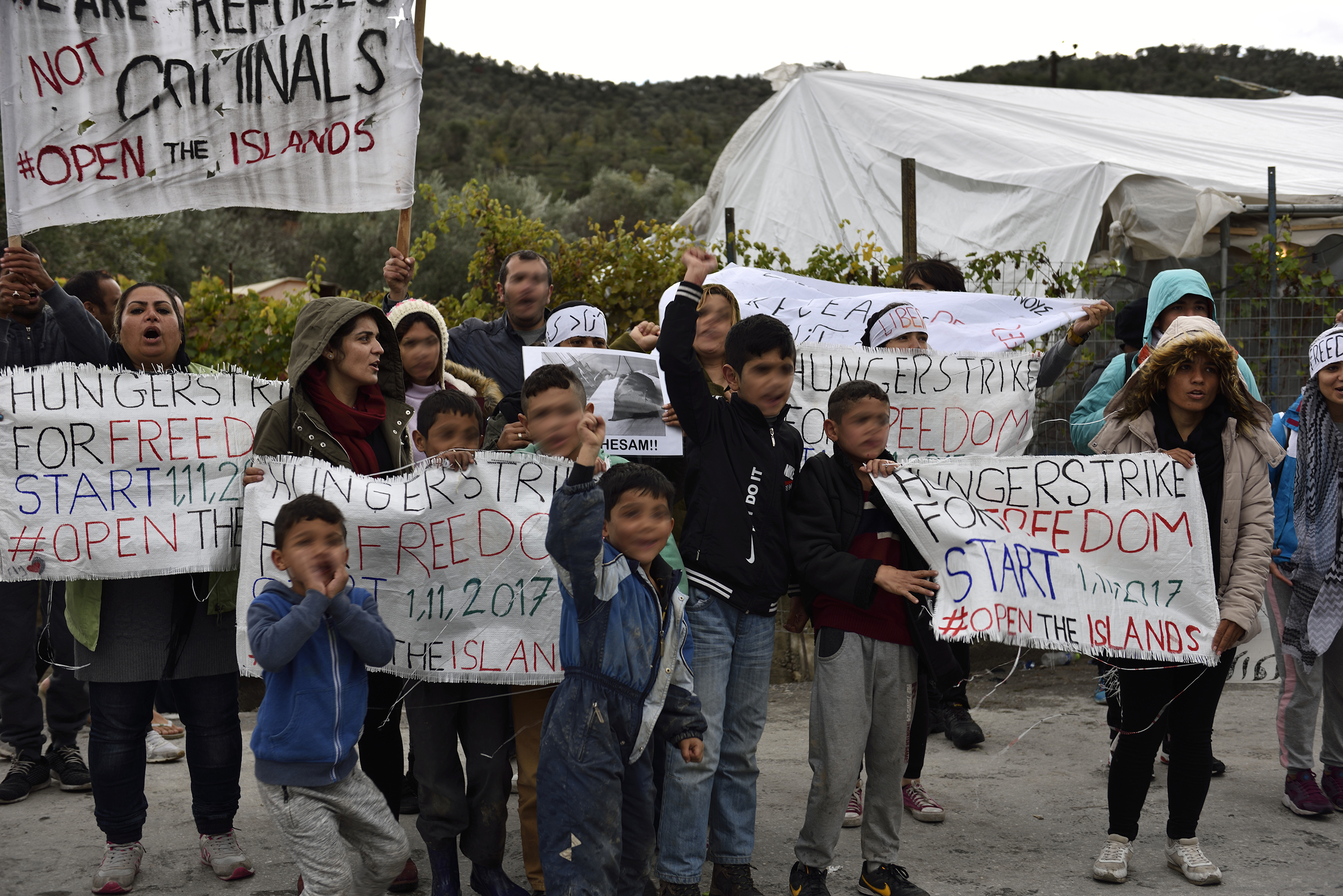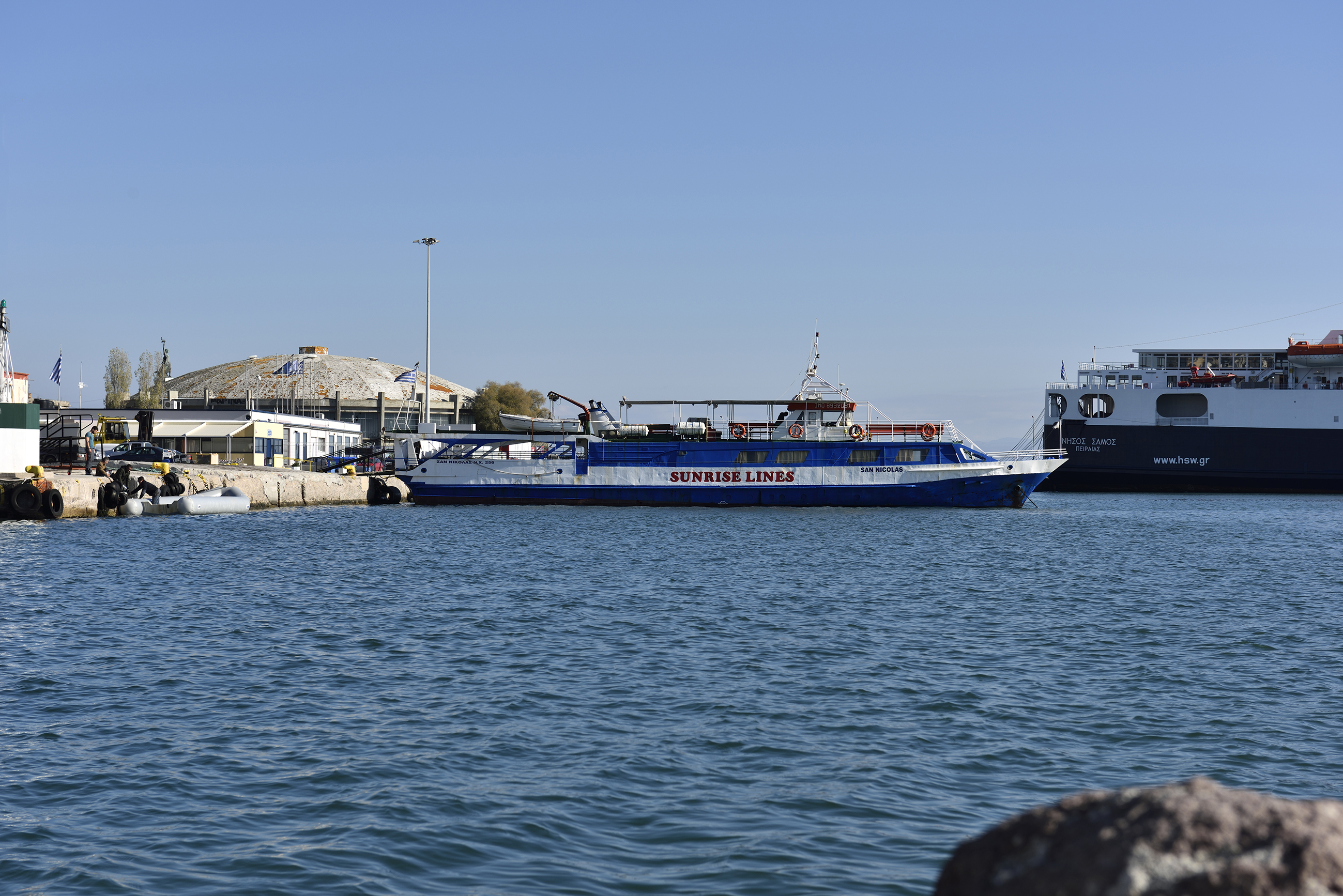On Thursday, 23rd November 2017, the deportation of two migrants was stopped last minute. The two men from Iran and Afghanistan were held in detention on Lesvos Island. Shortly before they were transported to the harbour of Mytilene to be quietly deported to Turkey via ferry, lawyers and activists managed to intervene and stop the deportation of the two men. Eight other people from Haiti, Tunisia, Afghanistan and Pakistan were however deported and will be detained in Turkey, among them a family with a small child.
For the two cases that were stopped, there were serious doubts about the lawfulness of the deportation practice. Alireza Kamran[1] from Iran is suffering from severe health problems while Tarik Chian from Afghanistan was prevented from exhausting his legal remedies in Greece. The names and cases of the other deportees were not known to the lawyers and activists monitoring the deportation. Therefore the legality of their deportation cannot be assessed but it is doubted that the persons concerned have received sufficient support to challenge second instance rejections.
The Iranian refugee Alireza had been on hunger strike for several days to protest against the terrible living conditions in the refugee camp of Moria and the restriction of movement of asylum seekers to the Greek hotspot islands. When his appeal against the first-instance decision of his asylum claim was rejected, he was arrested while protesting with a group of refugees on the central square of Mytilene town. Driven by desperation and fear, Alireza said he would commit suicide if he was to be deported. The hunger strike had strongly weakened his physical condition. Apart from the effects of the hunger strike, Alireza is suffering from severe chronical health problems documented by Doctors without Borders.
Nevertheless, he was kept in solitary detention for several days. The night before the attempted deportation, his fellow protestors negotiated with the police chief and a representative from the European Asylum Support Office that Alireza Kamran was to be moved from prison to hospital for treatment instead of being immediately deported. However, the next day, Kamran’s name was found on the deportation list. When he was taken from his cell for deportation, his medical condition deteriorated and – after pressure from his lawyer, activists and the Greek ombudsman – his name was deleted from the deportation list for the current day before he was taken to hospital for a few hours and then returned back to prison.

The lawyer Stratis Skountianellis of the young asylum seeker Tarik Chian from Afghanistan had objected the readmission decision and agreed with his client to appeal the rejection a second time before an administrative court. Nevertheless, on Wednesday, the 22nd of November, Tarek was transferred from the pre-removal centre in Moria Camp on Lesvos Island to the prison in the police station for deportation. The next day, only two hours before the deportation started, Tarek Chian was notified about the rejection of his lawyer’s petition to suspend the deportation. Because his phone was confiscated he could not contact his lawyer, but activists witnessed the transfer and were able to alarm the lawyer. Journalists and activists assembled at the harbour and at the police station and the legal representative of the Afghan detainee went to the police station to demand the deportation to be stopped. At first, his complaint was dismissed again and only through the spontaneous intervention of the Greek ombudsman who was alarmed by the Skountianellis, the deportation was eventually halted. Stratis Skountianellis explained:
“The law says that the state has to provide the applicants the right to bring a case to the court with ‘proper’ legal aid. This is an indefinite term, so it is a matter of defining the law. The European Court of Human Rights would have definitely considered the deportation illegal.”
At the current state, the fate of both rejected asylum seekers is still unclear and it is possible that they will be deported in following transports. On the same day as their deportation was prevented, eight other people from Haiti, Tunisia, Afghanistan and Pakistan were deported to Turkey.

Every week, about 10 to 20 people are deported from Lesvos Island to Turkey under the EU-Turkey Deal. Lawyers report that among the deportees, asylum seekers who are still under an ongoing appeal procedure against their second-instance rejection in Greece are frequent. In Greece, the second-instance appeal does not have an automatic suspensive effect. In a long and complicated procedure, lawyers have to request for interim measures and submit a suspension of the deportation, both on the Greek island and on the mainland. This costly and time-consuming process is for most cases not realistically manageable by lawyers who are overwhelmed with the number of 8000 clients forced to stay in the camp sites of the hotspot island Lesvos alone, even if their clients are justifiably fearing to return to Turkey or their countries of origin. Even for the cases where lawyers are able to start the process of a second instance appeal, their clients can be deported during the appeal process, while the documents for the suspension of the deportation are still about to be prepared.

Adding to this problematic legal setting, asylum applicants are deported without prior notice and with only very limited oversight of the legality of their deportation. This way, the EU-Turkey deal creates a situation where basic guarantees to object to deportation decisions are not met. Once the deportees arrive in Turkey, it is even harder for them to claim their rights – the vast majority is detained and many of them are eventually returned to their home countries where the European Union turns a blind eye on their fate.
[1] Names of asylum seekers changed.
